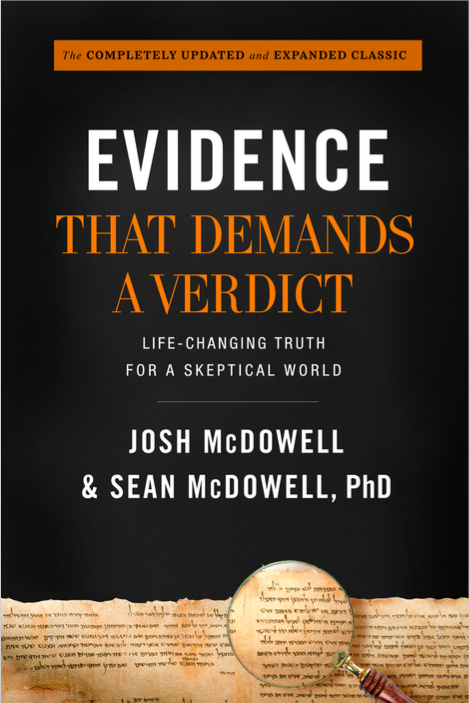Does Evidence Demand a “Positive” Verdict?
SeanMcDowell.org
Recently I picked up a copy of Confronting Old Testament Controversies and was thrilled to see a scholar as eminent as Tremper Longman III bring his expertise to pressing issues such as evolution, sexuality, history, and Old Testament violence.
Although I disagree with him on a few significant points, Longman is an accomplished scholar who brings clarity, thoughtfulness, and charity to these dicey topics. I am especially encouraged that he wrote a lengthy biblical defense of the “long-standing and widely held traditional view” of sexuality. He defends the clarity of the Scriptures on this issue but does so with kindness and love towards those who see the world differently.
Yet I was surprised to encounter a brief section at the end of the chapter on history and the Old Testament that says,
“The apologist Josh McDowell wrote a still-popular book (now in its fourth edition and coauthored with his son Sean) with the provocative title Evidence that Demands a Verdict. It is a bold statement, but untrue. There is no evidence that demands a positive verdict from every reasonable person.”
The reason this section surprises me is that it is a blatant misunderstanding of the meaning of the title. The title of the book is not Evidence that Demands a Positive Verdict. Longman inserted this word into the title in a way that transforms its intended meaning.
My father and I actually agree with him that the evidence for Christianity does not demand “a positive verdict from every reasonable person,” as Longman states. But that’s not the point of the title! The point of the title is that there is evidence for the Christian faith that demands people come to a verdict. Here is how my father described it to me recently:
“The evidence for Abraham Lincoln does not demand a verdict. Ultimately it doesn’t matter what people conclude about the identity of Lincoln because it has no implications for the nature of reality or their eternal destinies. But what we believe about the identity of Jesus matters. People may believe in Jesus. Others may reject him. But each of us must wrestle with the evidence and come to a verdict about whether his claims are true or false and if we will believe in him.”
Again, the purpose of the title is not meant to convey that every reasonable person must believe in Christianity. Evidence was primarily written to strengthen Christians in their faith. And it is secondarily an invitation for non-believers to wrestle with the historical evidence and hopefully come to a positive conclusion about the identity of Christ.
I hesitated to write this blog, because Longman is addressing vital issues facing the culture and church today that are much more important than the title of a book. And yet, as Longman notes, Evidence continues to be an influential source today for both believers and non-believers, and so it is important to get the title (and the book’s claims) right.
My hope in writing this blog is twofold. First, that Longman will continue to bring his expertise and biblical commitment to these contentious issues. And second, if he updates his book in the future, or discusses Evidence in a different setting, he will more carefully depict its intended meaning.

